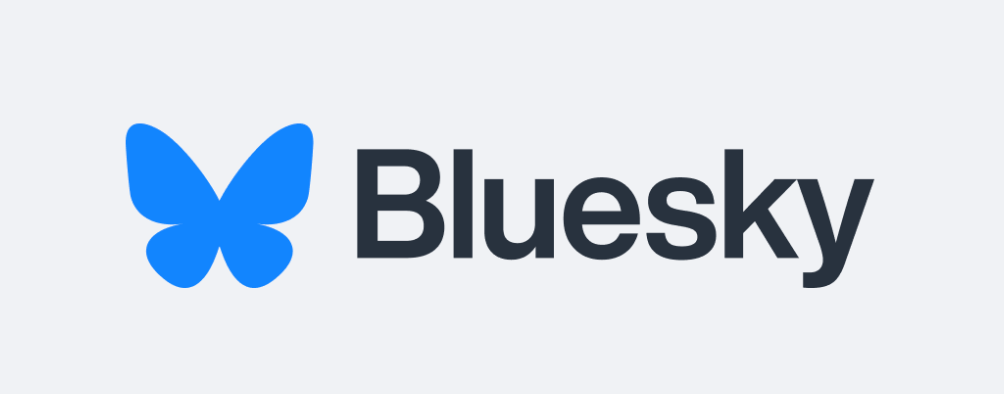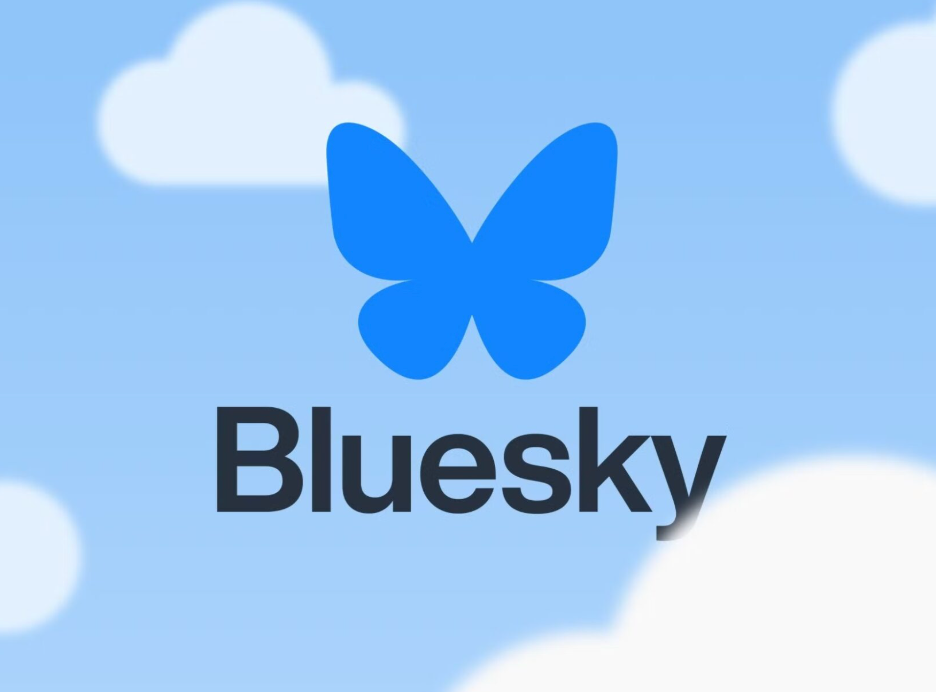The concept of decentralized public conversation is transforming the way we interact on social media platforms. Bluesky, a promising social app, is at the forefront of this evolution. By prioritizing transparency, algorithmic customization, and independent moderation services, the Bluesky project aims to redefine the digital space.
This article explores what Bluesky is, how it works, and why it is creating waves among developers, users, and communities seeking more control over their online interactions.
What is Bluesky?
Bluesky is a decentralized social media app designed to offer a new approach to public conversation. Unlike traditional platforms dominated by a single company, Bluesky operates on an open-source framework.

The platform’s core lies in the decentralized protocol, empowering developers and users to interact without centralized gatekeeping. Founded by former Twitter CEO Jack Dorsey, Bluesky is positioning itself as an innovative alternative to conventional social networks.
Key Features of Bluesky
- Custom Feeds and Algorithms
Bluesky introduced algorithmic feeds that allow users to tailor their timelines. Custom feeds give users the power to decide what content appears, reducing the influence of platform-controlled algorithms. - Independent Moderation Services
Unlike platforms that rely on a single moderation system, Bluesky offers community labeling and moderation tools. These features enable users and communities to handle moderation issues, ensuring fair handling of posts and replies. - Open Source Framework
Bluesky is built on an open-source framework, inviting developers to innovate and contribute. This approach fosters transparency and builds trust among users. - Decentralized Standard
Bluesky is not just an app but a decentralized protocol designed to operate independently of a single entity. This system ensures that no single company has complete control over user data or platform governance.
Bluesky vs. Traditional Social Media Platforms
Bluesky stands apart from existing platforms like Twitter and Facebook in its approach to public conversation.
While these platforms rely on centralized algorithms and moderation, Bluesky promotes autonomy and transparency. Twitter users frustrated with algorithmic bias and moderation controversies may find Bluesky’s open-source and customizable features appealing.
Why Bluesky Matters in the Social Media Landscape

Bluesky is not just another app; it represents a shift in how social networks operate. The growing discontent with centralized platforms has driven interest in decentralized alternatives. Users want more control over their data, timelines, and how moderation decisions are made.
Empowering Communities
Bluesky’s tools, such as community labeling and customizable feeds, empower users to take charge of their experience.
Whether it’s filtering content or creating a curated list of posts, the platform supports diverse preferences.
Addressing Moderation Issues
One of the biggest challenges on social media platforms is moderation.
Bluesky tackles these challenges through independent moderation services, allowing communities to set their own standards while maintaining accountability.
Features like hide replies and robust moderation tools ensure that harmful content such as racial slurs is managed effectively.
Fostering a Global Conversation
Bluesky’s vision is to facilitate a global conversation by removing barriers like centralized control and opaque algorithms. This inclusivity drives interest among new users, developers, and businesses aiming to reach diverse audiences.
How Bluesky Drives Large-Scale Adoption
Adoption of a decentralized protocol like Bluesky requires solving unique challenges. Here’s how the platform plans to achieve large-scale adoption:
- Custom Algorithms for Tailored Experiences
By offering custom algorithms, Bluesky allows users to personalize their feeds. This feature appeals to a broad audience, from casual users to businesses and influencers. - Starter Packs for New Users
To ease the onboarding process, Bluesky provides starter packs with pre-configured settings, enabling new users to navigate the app seamlessly. - Transparent Governance
Bluesky’s reliance on a small independent team ensures that decision-making is transparent and user-focused. - Developer Collaboration
Bluesky’s open source architects encourage developers to innovate and create plugins, enhancing the platform’s functionality and appeal.
Common Challenges and How Bluesky Tackles Them

Decentralized platforms come with their own set of challenges, including adoption barriers and moderation issues. Bluesky addresses these concerns with thoughtful solutions:
- Scalability
Bluesky’s decentralized protocol ensures that the platform can scale without becoming bogged down by centralized infrastructure. - Moderation Features
Tools like community labeling and independent moderation services allow the platform to maintain a safe and inclusive space. - User Experience
By integrating features like direct messages and customizable timelines, Bluesky creates a familiar yet innovative experience for users.
The Role of Bluesky in the Future of Social Media
Bluesky represents the early days of a new era in social networking. As the platform grows, it will likely influence how other social media platforms approach decentralization, moderation, and user control.
Opportunities for Businesses
Businesses can benefit from Bluesky’s unique features, such as custom feeds and direct engagement with niche communities. The platform’s focus on transparency and user empowerment aligns with modern consumer expectations.
For Developers
Developers have the chance to innovate on Bluesky’s open source framework. The decentralized nature of the platform ensures creative freedom and collaborative opportunities.
Impact on Social Media Ecosystems
Bluesky’s success could lead to widespread adoption of decentralized systems across the internet, challenging the dominance of traditional platforms.
This shift would empower users and developers, fostering a healthier digital ecosystem.
Similarities and Differences: Bluesky Project vs. Twitter (X)
Bluesky and Twitter (now X) are two prominent players in the social media landscape, both facilitating global conversations and offering features for connecting users worldwide.
However, their approaches differ significantly in terms of structure, governance, and user empowerment.
Below, we explore five key points of comparison to help you understand their similarities and distinctions.
1. User Base and Popularity
- Similarities
Both platforms have a focus on creating a space for sharing users posts and engaging in discussions. They aim to connect people globally, fostering relationships with friends, communities, and beyond. - Differences
While Twitter boasts hundreds of million users and a long-standing presence, the Bluesky app is still in its infancy, with a steadily growing yet smaller user base. Bluesky users include early adopters seeking alternative, decentralized platforms, while Twitter’s audience spans various demographics and industries.
2. Governance and Ownership
- Similarities
Both platforms operate as businesses with their own structures, aiming to monetize their services while catering to user needs. They also focus on moderation and content management to ensure appropriate interactions. - Differences
Twitter is a traditional corporation owned by a single entity, while Bluesky functions as an independent company with a decentralized ethos. Jay Graber, the CEO of Bluesky, emphasizes the importance of user control and community-driven governance, in stark contrast to Twitter’s top-down approach.
3. Technical Foundations
- Similarities
Both platforms use modern web technologies to support accounts, data management, and real-time content sharing. They allow access through mobile apps and the web, making them accessible to global audiences. - Differences
Bluesky operates on a decentralized protocol, enabling open-source innovation and reducing dependency on a single governing body. Twitter, by contrast, uses proprietary systems and a centralized framework, granting the platform exclusive control over its domain and infrastructure.
4. Moderation and Content Control with Independent Moderation Services
- Similarities
Both platforms address content moderation to create safe spaces for their users. Tools for managing users posts and handling sensitive content are integral to their operations. - Differences
Bluesky offers community-based moderation with more detail on customization, allowing users to set their own guidelines. Twitter, while having moderation mechanisms, has faced criticism for inconsistent enforcement and perceived bias, leading to events like a posting strike by disgruntled users.
5. Target Audience and Vision
- Similarities
Both platforms cater to users seeking online engagement, providing tools to follow friends, build communities, and share content. They also attract developers interested in exploring social media innovations. - Differences
Twitter’s target audience is broader, including businesses, celebrities, and individuals from all walks of life. In contrast, Bluesky focuses on tech-savvy early adopters, developers, and communities desiring a decentralized experience. Bluesky’s vision aligns with its north Texas roots—fostering independence and collaboration as part of a broader social experiment.
Expert Comment

Dr. Samuel T. Harper, a renowned expert in digital ecosystems and author of “The Future of Decentralized Networks”, shared his insights on the emerging dynamics between Bluesky and traditional social networks:
“As Bluesky announced its ambitious plans for a decentralized protocol, it signaled a pivotal shift in how social networks operate.
Unlike platforms with centralized control, Bluesky leverages an open source framework to empower developers and communities.
This approach gives Bluesky users unparalleled freedom to manage their feeds, accounts, and community interactions.
The platform’s emphasis on independent moderation services and tools like community labeling helps address long-standing moderation issues seen on traditional social media apps.
While Twitter users have grown accustomed to centralized systems, Bluesky’s strategy provides a more transparent alternative for those disillusioned with mainstream services.
It’s still the early days for the Bluesky app, but the potential for scalability and inclusivity is evident.
By building on a decentralized protocol, the platform ensures its network remains resilient, giving both users and developers greater agency.
Bluesky’s curated list of moderation tools and its transparent approach to governance positions it uniquely among a competitive landscape of social apps. As it scales towards potentially reaching a million users, its success will depend on how effectively it balances innovation with user adoption.
Ultimately, Bluesky’s focus on decentralized services and its commitment to maintaining an open domain could redefine the very fabric of the social media ecosystem,” Harper concluded.
Renowned media like Business Insider also see the importance of this site for the social media ecosystem.
With many social media platforms becoming obsolete, or controlled, Bluesky comes with a bit of fresh air that can now be leveraged by users all over the world.
So, if you are not a user yet, there is no reason why you shouldn’t become one!
Final Thoughts
Bluesky is more than just a new app; it is a blueprint for a more transparent, decentralized, and user-focused internet. By addressing challenges like moderation, scalability, and algorithmic bias, Bluesky sets the stage for a future where public conversation is truly inclusive and independent. Whether you are a developer, business owner, or social media enthusiast, exploring the potential of Bluesky could redefine how you interact online.
FAQ
Is Bluesky just Twitter?
No, Bluesky is not Twitter. While both are social networks, Bluesky operates on a decentralized protocol, giving users more control over feeds, moderation, and community interactions compared to Twitter’s centralized structure.
What is Bluesky?
Bluesky is a decentralized social app built on an open-source framework. It empowers users and developers to customize feeds, manage content, and address moderation issues while fostering a transparent and community-driven online network.
Is Bluesky a good alternative to Twitter?
Yes, Bluesky is a viable alternative for those seeking decentralized control, independent moderation services, and customizable user experiences, making it ideal for users frustrated with Twitter’s centralized approach.
Does Bluesky belong to Disney?
No, Bluesky is an independent company and does not belong to Disney. It operates as a separate entity focused on decentralized social media innovation.
Does Elon own Bluesky?
No, Elon Musk does not own Bluesky. Initially funded by Twitter, Bluesky became an independent company in 2021. As of May 2024, it is predominantly owned and operated by CEO Jay Graber.
Is Bluesky still invite only?
No, Bluesky is no longer invite-only. In February 2024, Bluesky removed the invite code requirement, allowing anyone to sign up freely.
